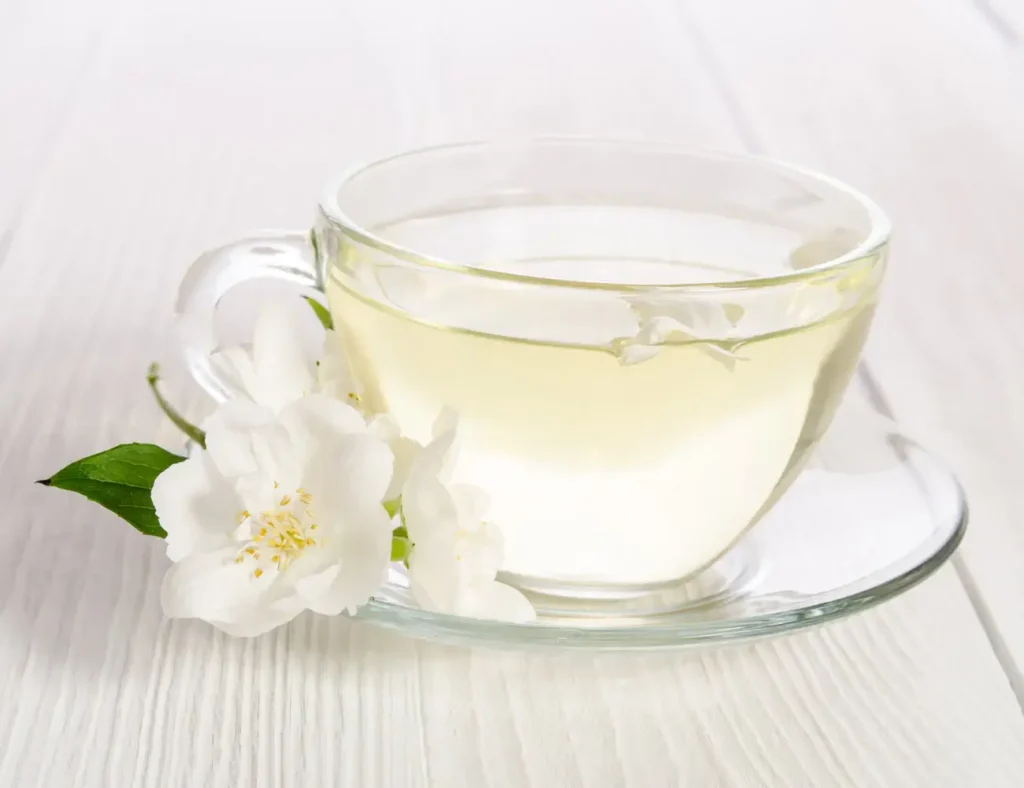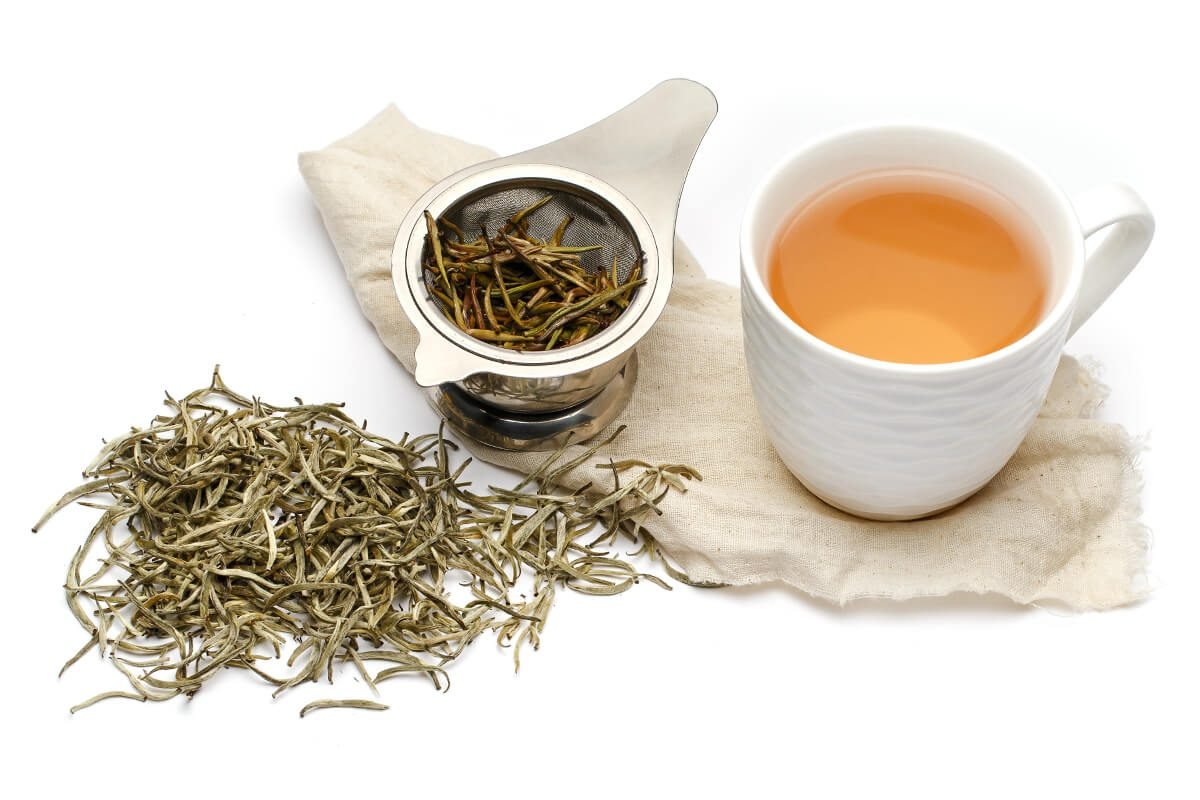Table of Contents
White tea is often celebrated for its delicate flavor and subtle aroma, but many people are curious about its health benefits. Derived from the young leaves and buds of the Camellia sinensis plant, white tea undergoes minimal processing, preserving its natural compounds. In this article, we will answer the question, “Is white tea healthy for you?” by exploring its numerous health benefits, how to incorporate it into your lifestyle, and potential drawbacks to consider.
Understanding White Tea
Before diving into its health benefits, it’s essential to understand what white tea is. Unlike black tea or green tea, which are processed from older leaves, white tea is made from the youngest buds and leaves of the tea plant. This results in a lighter flavor profile and a higher concentration of antioxidants.
White tea is typically harvested in early spring when the buds are still covered with fine white hairs, which is where the name “white tea” originates. The most popular varieties include Silver Needle and White Peony, both known for their unique flavors and health properties.
Health Benefits Of White Tea
1. Packed with Antioxidants
One of the most compelling reasons to consider white tea is its high antioxidant content. Antioxidants are vital for neutralizing free radicals in the body, which can lead to oxidative stress and various chronic diseases. White tea is rich in catechins, particularly epicatechin gallate (EGCG), a potent antioxidant that has been studied for its health benefits.

Research has shown that white tea contains higher levels of antioxidants compared to green and black teas. These antioxidants can protect cells from damage, reduce inflammation, and even support healthy aging. So, is white tea healthy for you? Yes, incorporating white tea into your diet can help combat the negative effects of environmental stressors and promote overall well-being.
2. Promotes Heart Health
Heart disease remains one of the leading causes of death worldwide. Thankfully, white tea may play a role in promoting cardiovascular health. Studies suggest that the antioxidants in white tea can help lower LDL cholesterol levels, the “bad” cholesterol linked to heart disease.
Additionally, white tea has been shown to improve blood vessel function, which can enhance circulation. The polyphenols present in white tea may help relax blood vessels, reducing blood pressure and decreasing the risk of heart-related issues. By drinking white tea regularly, you may be taking a proactive step toward maintaining a healthy heart.
3. Supports Weight Management
For those looking to lose or maintain weight, white tea can be a beneficial addition to your diet. While no single food or beverage will magically melt away pounds, certain studies suggest that white tea may support weight management efforts.
White tea contains both caffeine and catechins, which work together to boost metabolism and promote fat oxidation. This means that drinking white tea can help increase the number of calories burned throughout the day. Additionally, some research indicates that white tea may inhibit the formation of new fat cells, making it a valuable ally for those seeking to manage their weight.
To maximize these benefits, consider replacing sugary drinks with white tea. Not only is it low in calories, but it also offers a wealth of health benefits.
4. Enhances Skin Health
The benefits of white tea extend beyond internal health; it can also enhance your skin’s appearance and health. The antioxidants in white tea help protect the skin from damage caused by UV rays, pollution, and other environmental stressors.
Regular consumption of white tea can improve skin elasticity and reduce the appearance of fine lines and wrinkles. Some skincare products even incorporate white tea extract due to its anti-inflammatory properties, which can soothe irritated skin and promote a radiant complexion.
For those with acne-prone skin, white tea’s antimicrobial properties may help reduce breakouts and promote clearer skin. By integrating white tea into your skincare routine—whether through consumption or topical application—you can harness its potential benefits for healthier skin.

5. Strengthens Immune Function
A robust immune system is crucial for overall health, especially during cold and flu season. White tea may help bolster your immune system due to its rich array of polyphenols and flavonoids, which possess antimicrobial properties.
Research indicates that these compounds can enhance the body’s ability to fight off infections and support a healthy inflammatory response. By regularly consuming white tea, you may reduce your risk of falling ill and enhance your body’s natural defenses.
6. Aids Digestion
Proper digestion is fundamental to overall health, and white tea can contribute to digestive well-being. The polyphenols in white tea have been found to promote healthy gut bacteria, which is essential for effective digestion and nutrient absorption.
Drinking white tea may also help soothe gastrointestinal discomfort, such as bloating or indigestion. Its mild flavor and soothing properties make it a perfect choice after meals.
7. May Reduce Cancer Risk
While no beverage can guarantee cancer prevention, certain studies suggest that the antioxidants found in white tea may help reduce the risk of certain types of cancer. The catechins in white tea have been studied for their potential ability to inhibit tumor growth and promote apoptosis (the process of programmed cell death) in cancer cells.
While research is still ongoing, preliminary findings suggest that regular consumption of white tea may be associated with a lower risk of specific cancers, including breast and prostate cancer.
8. Mental Clarity and Focus
Caffeine content in white tea is lower than that in coffee or black tea, making it an excellent choice for those sensitive to caffeine but still seeking a mild boost in focus. The combination of caffeine and L-theanine, an amino acid found in tea, may enhance cognitive function and improve mental clarity.
Drinking white tea can provide a gentle energy lift without the jitters commonly associated with high-caffeine beverages. This makes it an ideal option for students or professionals looking for sustained focus throughout the day.
👉 Sip the Best White Tea for Ultimate Refreshment! 👈
How to Brew White Tea for Maximum Benefits
To truly enjoy the benefits of white tea, it’s essential to brew it correctly. Here are some tips:
- Select Quality Tea: Opt for high-quality loose-leaf white tea or premium tea bags to ensure you’re getting the best flavor and health benefits.
- Water Temperature: Use water that is between 160-185°F (70-85°C). If the water is too hot, it can scorch the delicate leaves, resulting in a bitter taste.
- Steeping Time: Steep white tea for about 4-5 minutes. This allows the flavors and beneficial compounds to be fully extracted. You can adjust the steeping time according to your taste preference.
- Enjoy Plain or with Additives: White tea is delicious on its own, but you can enhance its flavor with natural ingredients like honey, lemon, or mint if desired.

Potential Drawbacks of White Tea
So, is white tea healthy for you? While white tea offers numerous health benefits, it’s important to consider potential drawbacks:
- Caffeine Sensitivity: Although white tea contains less caffeine than other teas, it can still affect individuals sensitive to caffeine. Monitor your intake if you experience jitters or sleep disturbances.
- Iron Absorption: Like other teas, white tea contains tannins, which can interfere with iron absorption. If you have iron deficiency or are at risk, consider drinking white tea between meals rather than during meals.
- Allergic Reactions: Some individuals may be allergic to compounds found in tea. If you experience any adverse reactions, discontinue use and consult a healthcare professional.
Conclusion
In conclusion, the question “Is white tea healthy for you?” can be answered with a resounding yes. With its rich antioxidant profile, support for heart health, aid in weight management, skin-enhancing properties, and immune-boosting benefits, the health benefits of white tea make it a remarkable beverage that deserves a place in your daily routine.
Incorporating white tea into your lifestyle can be a simple yet effective way to support your health. Whether enjoyed alone or as part of a larger wellness strategy, white tea offers a multitude of benefits worth exploring. Always consult with a healthcare professional if you have specific health concerns, especially if you are pregnant or nursing.
👉 Enjoy the Best White Tea – Order Now! 👈
Final Thoughts
As you explore the world of white tea, take the time to enjoy its delicate flavors and remarkable health benefits. By adding this exquisite beverage to your routine, you can embrace its potential to enhance your overall well-being. Is white tea good for you? Absolutely. Whether sipped in solitude or shared with friends, white tea is not just a drink—it’s a path to a healthier lifestyle.













